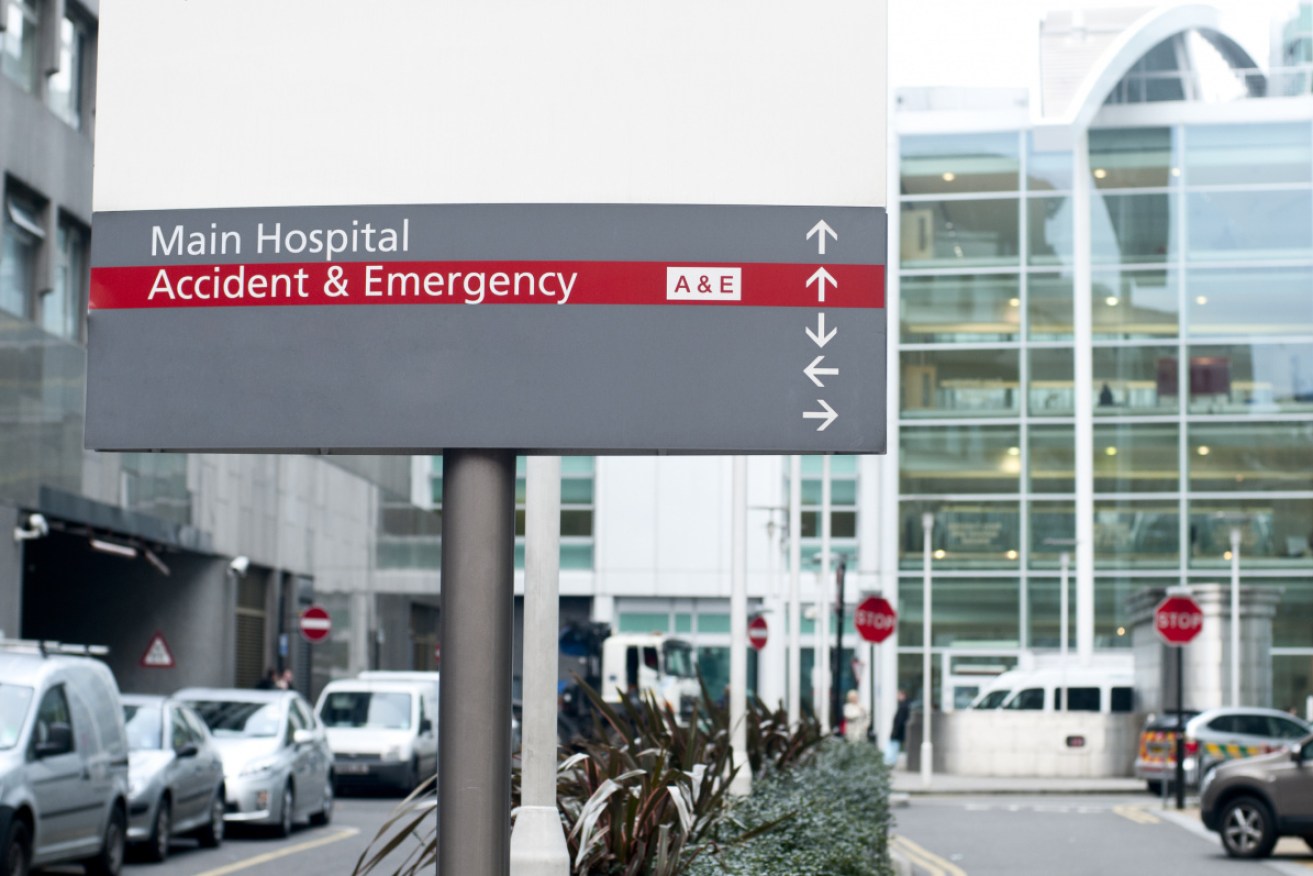Parents told to give babies peanuts and eggs at home, not at hospital car parks


Emergency admissions and elective surgery waiting times have gone up, according to latest data. Photo: Getty
Widespread parental fears about giving nuts, eggs or other allergenic foods to babies for the first time are “misplaced” and are fuelled by a culture of anxiety, a leading GP has told The New Daily.
The comments were made in the wake of recent reports that some parents are so terrified an anaphylactic shock may occur they have resorted to parking outside medical centres and hospitals when introducing these foods.
Brisbane GP and chair of the RACGP specific interests antenatal/postnatal care network, Dr Wendy Burton, said severe reactions were rare and parents should not be alarmed.
“The fear is misplaced. The chances of there being any significant adverse effect is actually remarkably low, even in a high-risk individual or family scenario,” Dr Burton told The New Daily.
According to the Australasian Society of Clinical Immunology and Allergy (ASCIA), egg allergies are now affecting about one in 10 children under the age of one. Approximately 3 per cent of infants under one have a peanut allergy.
Despite an explosion in food allergy cases in Australia, experts say there have been no reports of peanut allergy-related deaths in anyone under 12 months of age around the world.
“The science supports the introduction of eggs and peanuts … it’s safe to do this at home,” Dr Burton said.
Car park practice not new
Dr Burton acknowledged the “car park practice” has been a problem for years, but stressed the extreme measure is not on the rise, as some recent reports have suggested.
In the lead up to the publication of updated food allergy guidelines, Dr Burton conducted a GP poll on the topic and found, among the 40 GPs who responded, most were aware of the car park practice, or knew of a parent who had tried it in the past.
She said the publication of the poll results had prompted some “out of context” reports.
“There’s not a pick up of the practice. And this is not in response to the new guidelines, which are only a week old,” she said.
“This is, I think, the fear factor. Some, not most, parents being alarmed to the point that they’re thinking they’ll be safe doing this in a car park.”
Accredited practising dietitian and spokesperson for the Dietitians Association of Australia, Natasha Murray, said she had heard of the practice happening in green parks near hospitals years ago.
“Starting a child on solids is a daunting time,” Ms Murray, a mother of three, told The New Daily.
“However we have a fantastic ambulance system. And it’s important to note that reactions don’t always happen on the first exposure.”
What do the revised guidelines recommend?
In January, ASCIA updated its food allergy guidelines to reflect the latest available evidence.
Parents are now encouraged to introduce babies to a wide range of foods, especially egg and peanuts, in their first year.
Dr Preeti Joshi, from ASCIA and an allergy specialist at Westmead Children’s Hospital, said it’s natural for parents to feel confused or worried about food allergies.
“The evidence that we have shows that, particularly if your child is at high risk of developing an allergy, the chance of them developing a peanut allergy and perhaps an egg allergy is reduced if you start to introduce these foods at around six months, but not before four months,” she told The New Daily.
“That might be contrary to what you think … and it’s completely understandable if parents are worried.”
The updated advice is mostly based on results from the LEAP (Learning Early About Peanut Allergy) study, Dr Joshi said, which showed that delaying peanut exposure could be harmful.
The study involved a randomised trial of 640 children aged between four and 11 months with severe eczema, an egg allergy, or both. It found children who avoided peanuts early on were approximately seven times more likely to develop an allergy, compared to those who ate peanuts.

There’s a right and a wrong way to test children for food allergies, experts say. Photo: Getty
Practical advice for parents
Dr Joshi said ASCIA has developed a step-by-step guide for parents who are concerned about introducing allergenic foods.
It suggests that parents introduce well-cooked eggs and smooth peanut butter or paste slowly from about six months and when their baby is ready, but not before four months.
Once introduced, parents are advised to continue giving these foods twice a week as part of a varied diet, to maintain their child’s tolerance.
Ms Murray said it’s best to introduce each food one at a time, so the trigger food is more easily identifiable.
She said that parents should also remember that not every allergy leads to an anaphylactic reaction, which is when breathing stops.
Dr Joshi said parents who are very anxious or concerned should see their GP for help, instead of heading to the car park.
“The first thing is to talk to your GP. Tell them what your concerns are, and the GP can do an assessment,” Dr Joshi said.
“We’re not trying to medicalise the introduction of food, but I think it’s much better for everyone to be upfront and to be prepared.”
Dr Burton added she often talks to parents about introducing new foods and solids during routine immunisation consultations.
If parents are still highly anxious, she suggested organising a time with the GP to introduce allergenic foods in the clinic, rather going to extreme measures.
“We want to support parents to feel calm and comfortable about this, and not to feel alarmed and feel they have to do this in the car park,” Dr Burton said.
Useful resources:








